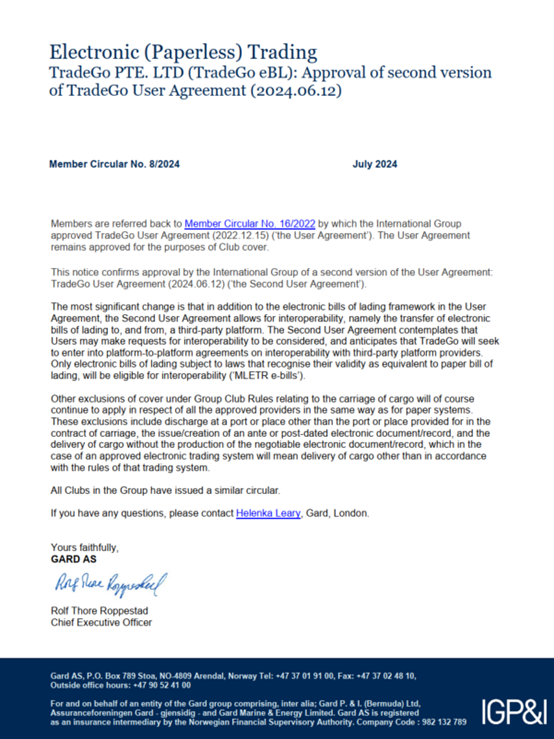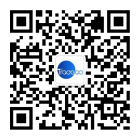TradeGo Updates Electronic Bill of Lading Agreement to Support Platform Interoperability
TradeGo has recently updated the second version of its "TradeGo User Agreement" (‘the Second User Agreement’). The most notable change in this update is the allowance for MLETR eBLs to interoperate across platforms. TradeGo can now accept eBLs from third-party platforms approved by the International Group of P&I Clubs (IGP&I), as well as transfer TradeGo eBLs to them.
Being approved by the IGP&I, TradeGo eBLs circulated across platforms under this Second User Agreement will also be covered by IGP&I insurance.
Electronic bills of lading (eBLs) have emerged as a digital alternative to traditional paper bills of lading, gradually gaining prominence in global trade over recent years. Despite the significant benefits of eBLs, such as increased efficiency, reduced costs, and lower fraud risk, the adoption has not been in significant scale. The main obstacle has been the lack of interoperability for eBLs to circulate across different platforms, resulting in isolated ecosystems that cannot connect. Companies are forced to use multiple platforms and manage various accounts to collaborate with different trading partners on different platforms, thereby increasing their operational burden.
Achieving interoperability among different eBL platforms can greatly promote the scaling of eBLs application and reduce user management costs, fostering a more integrated, efficient, and secure trade ecosystem.
TradeGo has always been actively participated in the development of technical standards and legal solutions to promote eBL interoperability. The commitment to updating the user agreement paves the way for platforms cooperation and integration, that is expected to enhance the product value and improve user experiences.


Scan the code to follow







